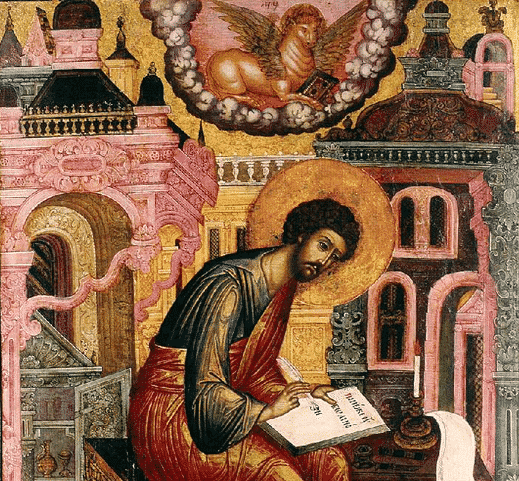Saint Luke as the Roman Lucius and Famous Brother in the Gospel (2 Cor 8:18)
Saint Luke wrote the majority of the New Testament – even more than Paul.
The Gospel according to Saint Luke (the longest of the four Gospels) and Acts of the Apostles rank Saint Luke in first place as largest contributor to the New Testament. As I argued in my book The Catholic Perspective on Paul, Saint Luke is also the writer of the Epistle to the Hebrews. Paul is the “author” and Luke is the “writer” or “drafter” Hebrews. (The Paul/Luke production of Hebrews is also the position of Saint Thomas Aquinas.)

Saint Luke as Loukas (3 mentions in NT)
This Luke (Λουκᾶς) is mentioned in Paul’s epistles three times:
Our dear friend Luke (Λουκᾶς) the physician, and Demas send greetings. (Col 4:14)
Saint Paul mentions Luke as his fellow worker along with Mark in Philemon:
And one thing more: Prepare a guest room for me, because I hope to be restored to you in answer to your prayers. Epaphras, my fellow prisoner in Christ Jesus, sends you greetings. And so do Mark, Aristarchus, Demas and Luke, my fellow workers. (Philem 1:22-24)
And then again in 2 Timothy in connection with Mark yet again:
“Luke alone is with me. Get Mark and bring him with you; for he is very useful in serving me.” (2 Tim 4:11)
Note here that Luke is Paul’s “dear friend,” Paul’s “fellow worker,” and Paul’s sole companion at the end of his life.
Saint Luke as Lucius (2 mentions in NT)
Lucius or Loukios (Greek: Λούκιος) appears two times in the New Testament, once in Acts (written by Luke) and once in Romans.
Lucius is the Romanized version of the name Luke. In a Roman context, Greek men would adapt their names to Latin by creating a -us ending so that their names would rightly decline in Latin. Hence, the way to give Λουκᾶς or “Loukas” a Roman ending is to modify the ending and render it as Lucius.
And wouldn’t you know it, we find this form of Luke’s name in Paul’s Epistle to the Romans!
Timothy, my co-worker, sends his greetings to you, as do Lucius (Λούκιος), Jason and Sosipater, my fellow Jews. (Rom 16:21)
Origen in his Commentary on Romans states that the “Lucius” in Romans is Saint Luke.
Lucius is also mentioned in connection with Barnabas and Paul in Acts:
In the church at Antioch there were prophets and teachers: Barnabas, Simeon called Niger, Lucius of Cyrene (Λούκιος ὁ Κυρηναῖος), Manaen (who had been brought up with Herod the tetrarch) and Saul. (Acts 13:1)
Note here the connection between Paul/Saul, Lucius, and Barnabas with…drumroll…Herod the Tetrarch. This proves that Paul/Saul was a Herodian. I’ll write more about this in a future post.
Luke as the “Famous Brother in the Gospel”
There is a unnamed man in 2 Corinthians that Paul refers to as a brother made famous in the Gospel:
But thanks be to God who puts the same earnest care for you into the heart of Titus. For he not only accepted our appeal, but being himself very earnest he is going to you of his own accord. With him we are sending the brother who is famous in the Gospel among all the churches (τὸν ἀδελφὸν οὗ ὁ ἔπαινος ἐν τῷ εὐαγγελίῳ διὰ πασῶν τῶν ἐκκλησιῶν); and not only that, but he has been appointed by the churches to travel with us in this gracious work which we are carrying on, for the glory of the Lord and to show our good will. (2 Cor 8:16-18)
Paul is sending Titus and another man who is famous “in all the churches.” Apparently, he is so famous that he doesn’t even need to be mentioned by name. The Corinthians know him already. Notably, he is famous “in the Gospel throughout all the churches” (ἐν τῷ εὐαγγελίῳ διὰ πασῶν τῶν ἐκκλησιῶν). Paul frequently speaks of the Gospel, but never in this way. Some English translations wrongly read “famous for preaching the Gospel,” but the Greek says “famous in/for the Gospel.”
Saint Thomas Aquinas suggests that this “famous brother” is Saint Luke and that he famous because Saint Luke has by this time published his written Gospel and that it has made him “famous throughout all the churches.” The date of 2 Corinthians is around AD 57 and so this would date Saint Luke’s Gospel before AD 57.
Modern scholars will laugh at this, but I think it makes great sense since Saint Paul cites the Gospel of Luke as Sacred “Scripture” in 1 Timothy 5:17-18.
[reminder]
What to Watch Next
SHOP THE TAYLOR MARSHALL STORE
Dive Deeper

GET CONFIDENT IN YOUR FAITH
Explore the fascinating world of Catholic teachings with Dr. Marshall. Together you’ll unpack the brilliant answers the Church gives to tough questions about the Faith. The best part: you go at your own pace. Start this exciting journey today.


 >
>


